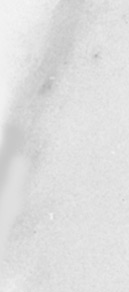

Prentice Hall and Sun Microsystems. Personal use only; do not redistribute.
7.2 HTTP 1.1 Response Headers and Their Meaning
151
for a document that changes relatively frequently, to prevent the
browser from displaying a stale cached value. For example, the follow
ing would instruct the browser not to cache the document for longer
than 10 minutes
long currentTime = System.currentTimeMillis();
long tenMinutes = 10*60*1000; // In milliseconds
response.setDateHeader("Expires",
currentTime + tenMinutes);
Also see the
max age
value of the
Cache Control
header.
Last Modified
This very useful header indicates when the document was last changed.
The client can then cache the document and supply a date by an
If Mod
ified Since
request header in later requests. This request is treated as
a conditional
GET
, with the document only being returned if the
Last Modified
date is later than the one specified for
If Modi
fied Since
. Otherwise, a 304 (
Not Modified
) status line is returned,
and the client uses the cached document. If you set this header explicitly,
use the
setDateHeader
method to save yourself the bother of formatting
GMT date strings. However, in most cases you simply implement the
getLastModified
method and let the standard
service
method handle
If Modified Since
requests. For an example, see Section 2.8 (An
Example Using Servlet Initialization and Page Modification Dates).
Location
This header, which should be included with all responses that have a sta
tus code in the 300s, notifies the browser of the document address. The
browser automatically reconnects to this location and retrieves the new
document. This header is usually set indirectly, along with a 302 status
code, by the
sendRedirect
method of
HttpServletResponse
. An
example is given in Section 6.3 (A Front End to Various Search Engines).
Pragma
Supplying this header with a value of
no cache
instructs HTTP 1.0 cli
ents not to cache the document. However, support for this header was
inconsistent with HTTP 1.0 browsers. In HTTP 1.1,
Cache Control:
no cache
is a more reliable replacement.
Second edition of this book: www.coreservlets.com; Sequel: www.moreservlets.com.
Servlet and JSP training courses by book's author: courses.coreservlets.com.
footer
Our partners:
PHP: Hypertext Preprocessor Best Web Hosting
Java Web Hosting
Jsp Web Hosting
Cheapest Web Hosting
Visionwebhosting.net Business web hosting division of Web
Design Plus. All rights reserved


